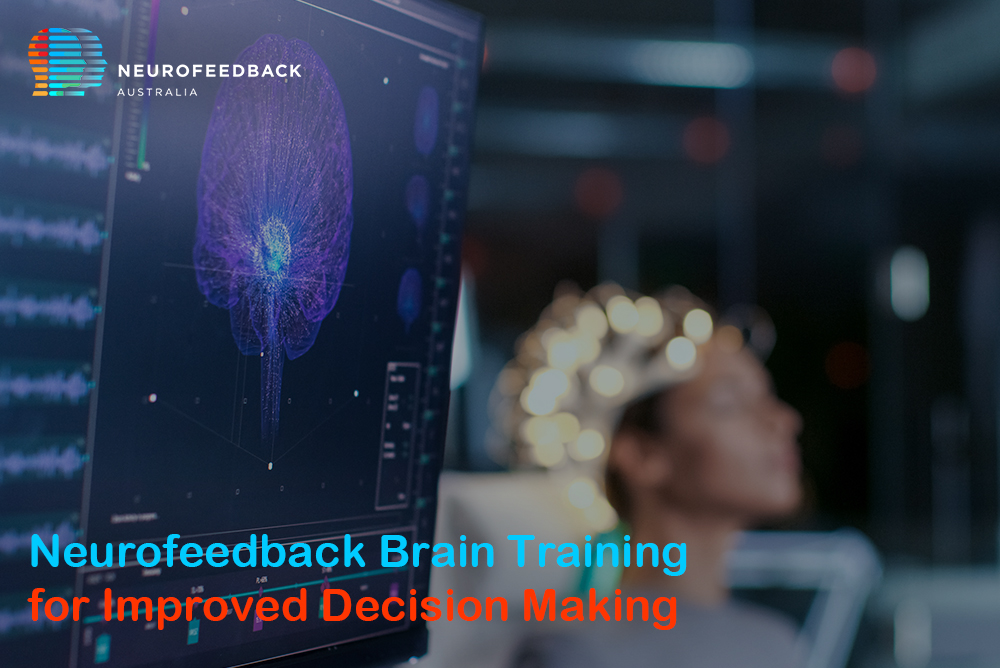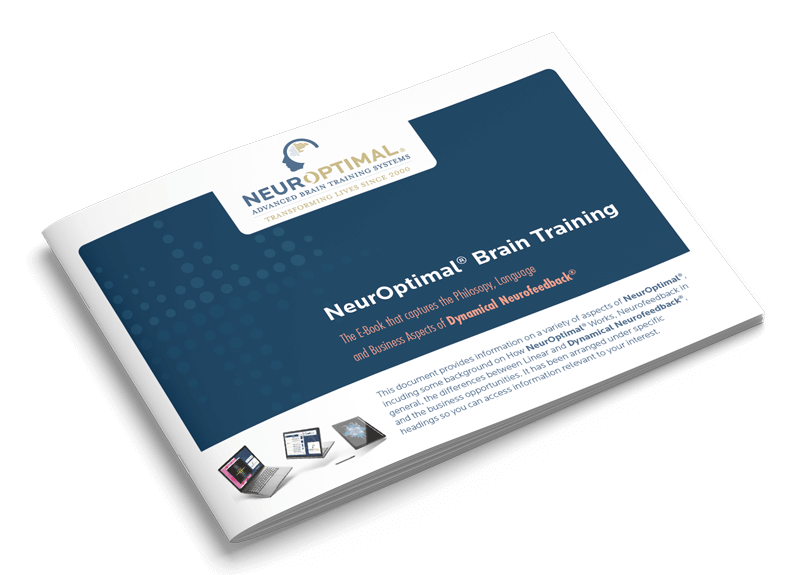
-
Posted By Neurofeedback
-
-
Comments 0
In an era where quick, effective decision-making can distinguish between success and failure, individuals across the globe, and particularly in Australia, are continuously seeking ways to enhance this crucial skill.
Amidst a variety of methodologies aimed at improving cognitive functions, neurofeedback brain training emerges as an area of innovation.
This article delves into how neurofeedback, especially through the advanced NeurOptimal® system, is revolutionising the way we approach decision-making enhancement.
What is Neurofeedback?
At its core, neurofeedback is a sophisticated form of biofeedback that focuses on the brain’s electrical activity.
It operates on the premise that by providing real-time feedback on ‘brainwave’ patterns, individuals can learn to modulate their own brain function, leading to improved mental health and cognitive abilities.
Among the myriad of neurofeedback systems, NeurOptimal® has garnered attention for its non-linear, dynamical approach, which offers a holistic route to brain optimisation without the side effects associated with more invasive techniques.
The Brain’s Role in Decision Making
Understanding the brain’s role in decision-making requires delving into the complex interplay between various brain regions, including the prefrontal cortex, amygdala, and hippocampus.
These areas are instrumental in evaluating options, predicting outcomes, and balancing emotions, ultimately culminating in the decisions we make daily.
Neurofeedback seeks to enhance the efficiency and connectivity of these regions, fostering a a more ‘present’ brain which is conducive to improved decision-making.
Neurofeedback and Cognitive Function
One of the primary appeals of neurofeedback is its capacity to bolster cognitive functions critical to decision-making.
Studies have shown that individuals who undergo neurofeedback training experience enhancements in focus, cognitive clarity, and the ability to process information swiftly and accurately.
This is particularly evident in research involving NeurOptimal®, which has demonstrated significant benefits in tasks requiring sustained attention and mental agility.
The implication is clear: neurofeedback can be a powerful ally in the quest for heightened cognitive performance.
Emotional Regulation Through Neurofeedback
The influence of emotions on our decision-making processes cannot be overstated. While emotions are integral to the human experience, they can sometimes cloud our judgement or lead us to make decisions that are not in our best interest.
Neurofeedback, and NeurOptimal® in particular, offers a pathway to better emotional regulation. By training the brain to maintain a more present and adaptable place, individuals can navigate emotional upheavals with greater ease, allowing for clearer, more rational decision-making.
Neurofeedback for Stress Reduction
Stress is another formidable barrier to effective decision-making. In moments of high stress, our cognitive functions can become compromised, leading us to make decisions impulsively or without adequate reflection.
Herein lies another benefit of neurofeedback: its ability to mitigate stress. The NeurOptimal® system facilitates relaxation and a sense of calm that can dramatically improve one’s ability to make well-considered decisions.
Improving Sleep Quality for Better Decision Making
The correlation between sleep quality and decision-making efficacy is well-documented. Sleep serves as a foundational pillar for cognitive health, influencing everything from memory and attention to problem-solving abilities.
Neurofeedback has been acknowledged for its role in supporting positive sleep hygiene and associated benefits.
By improving the quality of sleep, neurofeedback indirectly bolsters decision-making capabilities, ensuring the brain is well-rested and primed for optimal functioning.
Real-World Applications of Neurofeedback
The practical applications of neurofeedback in enhancing decision-making are as diverse as they are compelling. In the competitive realm of sports, athletes have leveraged NeurOptimal® to sharpen their focus and improve split-second decision-making.
In the corporate world, executives and employees have used neurofeedback to boost productivity and strategic thinking. These examples underscore the versatility of neurofeedback in improving decision-making across various aspects of life.
Getting Started with NeurOptimal®
For those interested in exploring the benefits of neurofeedback, starting with NeurOptimal® is a wise choice. This system is distinguished by its user-friendly interface and safety, making it accessible to people of all ages and walks of life.
Engaging in neurofeedback training typically involves participating in regular sessions where one can relax while the system provides auditory feedback.
Over time, these sessions can lead to significant improvements in brain function, laying the foundation for enhanced decision-making.
Final Thoughts
The journey towards improved decision-making is a multifaceted one, requiring a keen understanding of the intricate ways in which our brains process information and regulate emotions.
Neurofeedback, with NeurOptimal® at the forefront, offers a scientifically backed, innovative approach to enhancing this critical skill. By embracing neurofeedback, individuals can unlock their full cognitive potential, enabling them to navigate life’s myriad challenges with confidence and precision.
As we continue to push the boundaries of what’s possible with brain training, neurofeedback stands out as a pivotal tool in the quest for personal and professional growth, promising a brighter, more decisive future for all who venture to explore its potential.
At Neurofeedback Australia, we offer state-of-the-art neurofeedback technology NeurOptimal®, a personalised training program to help you achieve your brain training goals. Feel free to contact us to learn more about how we can help you unlock the full potential of your brain.
Please call us today at Neurofeedback Australia on 0438 710 015 for more information or leave an enquiry.

